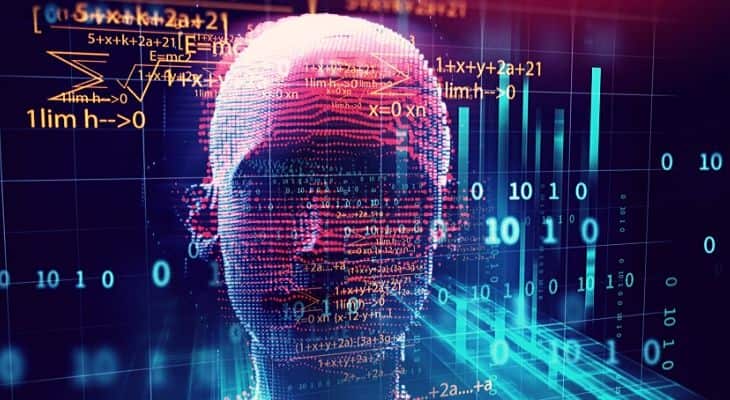
Technology is rapidly advancing, and what used to be science fiction are now becoming a part of daily life.
One of the most exciting technological developments right now is machine learning. As research into artificial intelligence continues, the concept of machine learning has already penetrated all aspects of society, from businesses and government to personal lives.
Who knows how much further machine learning is going to influence our lives? For now, these innovations are opening up new doors for smarted AI technology:
1. Securing Organizations From Hackers
Cybercriminals have cost billions of dollars in damages to organizations across the globe. As the e-commerce sector continues to grow, hackers are finding more sophisticated ways to steal and sabotage valuable data.
Organizations will need to stay two steps ahead of cybercriminals. Applying machine learning to cybersecurity can help improve IT defenses and analyze risk.
By analyzing previous data breaches and running security audits, AI-driven software can turn raw information into actionable insights for preventing a future breach.
Moreover, platforms that run on machine learning are becoming more capable of detecting suspicious behavior and blocking unauthorized access. Hackers know how to go under the radar by mimicking AI behaviors. With machine learning, organizations can get notified of inauthentic behavior and respond in real-time.
2. Driverless Cars For The Auto Market
Self-driving cars were the stuff of fiction. Today, they are becoming more accessible to the auto market. Amid safety and reliability issues, the autonomous cars market is expected to be $37.22 billion in 2023 as state governments pass laws regulating the increasing use of self-driving cars.
Autonomous driving technology is undergoing constant refinement as manufacturers like Tesla and Honda are developing safer and more responsive products for this thriving industry.
Using sensors and cameras, self-driving cars can gather environmental data to navigate around traffic, detect potential threats, and maximize fuel efficiency.
Along with IoT devices, machine learning can make the streets a lot safer for pedestrians and drivers. Considering how human error (along with distracted and drunk driving) is the main cause of car accidents, autonomous cars are expected to reduce fatalities and property damage to a minimum.
3. Understanding Customer Sentiments
When it comes to understanding customer preferences, it matters a lot to look at relevant data about their behaviors, preferences, and other variables.
Big data has been a game-changer for marketers across different industries. As e-commerce transactions continue to rise, companies will need to double down on driving customer retention through personalized experiences.
One important innovation is sentiment analysis. This emerging trend involves gathering in-depth data on audience opinions about certain products, services, or brands. Businesses have struggled with audience research for so long.
Now that machine learning has entered the picture, businesses can determine the type of content, emotional triggers, and motivations that drive customer purchases. With that being said, sentiment analysis allows you to uncover customer insights that often go undetected.
4. Detecting Medical Conditions And Researching New Drugs
The healthcare industry has benefited a great deal from new technology since the start of the pandemic last year. Along with telemedicine, medical institutions are also adopting machine learning for diagnosing and treating life-threatening diseases.
Using predictive analytics, doctors can gather accurate information about a patient’s overall well-being, identify risk factors, and develop preemptive treatment plans before a disease starts to set in.
With machine learning, doctors can detect signs of an emerging earlier before it worsens. This will allow doctors to develop the right treatments and improve patient outcomes. At present, patients can wear biomedical devices that analyze vital signs and notify physicians and caretakers of any serious symptoms as they develop.
Machine learning also has an important role to play in pharmaceutical research. AI software can run models that test out different drug configurations and determine the most optimal solutions to emerging diseases.
This has seen widespread application at the start of the COVID-19 pandemic when supercomputers such as Japan’s ‘Fugaku Supercomputer’ were used for high-speed drug research and development.
5. Using Machine Learning For Improving Classroom Outcomes
Improving learner outcomes and developing more efficient educational policies are the chief concerns of school systems across the world. Much of this stems from a lack of tools for analyzing how students engage in the classroom.
Machine learning can solve most of the problems that educational policy-makers face. When it comes to detecting problems related to classroom engagement, educators can use machine learning platforms to identify the environmental and social factors that affect retention.
Using machine learning, educational institutions can identify problems in the campus that contribute to educational efficiency. Using the right software, schools can draft campus development programs that can lead to a more conducive learning environment and culture where learners can thrive.
Another exciting innovation is the use of machine learning for analyzing career prospects. By taking into account key strengths in certain subject areas, machine learning can help students get a more accurate picture of the career path where they are most likely to succeed.
6. Optimizing Production Lines In Key Industries
Heavy industry is relying more and more on machine learning to enhance production lines, maximize resources, and reduce waste.
Using past data of defective products, for instance, manufacturers can improve their quality control mechanisms. AI software can increase detection accuracy, thereby helping inspection teams save time.
Machine learning can also help with designing assembly lines that allow for increased efficiency. Manufacturers can use AI-generated models to find the perfect setup that optimizes outputs and keep residual waste to a minimum.
Product development can also benefit a lot from machine learning. Manufacturers can simply collect data from previous product designs and relate these to current customer sentiments. As a result, machine learning gives an accurate idea of how likely a product concept will catch on once it’s launched.
Machine learning has the potential to change the way we live, learn, and do business. It holds a lot of promise as AI goes full circle.
